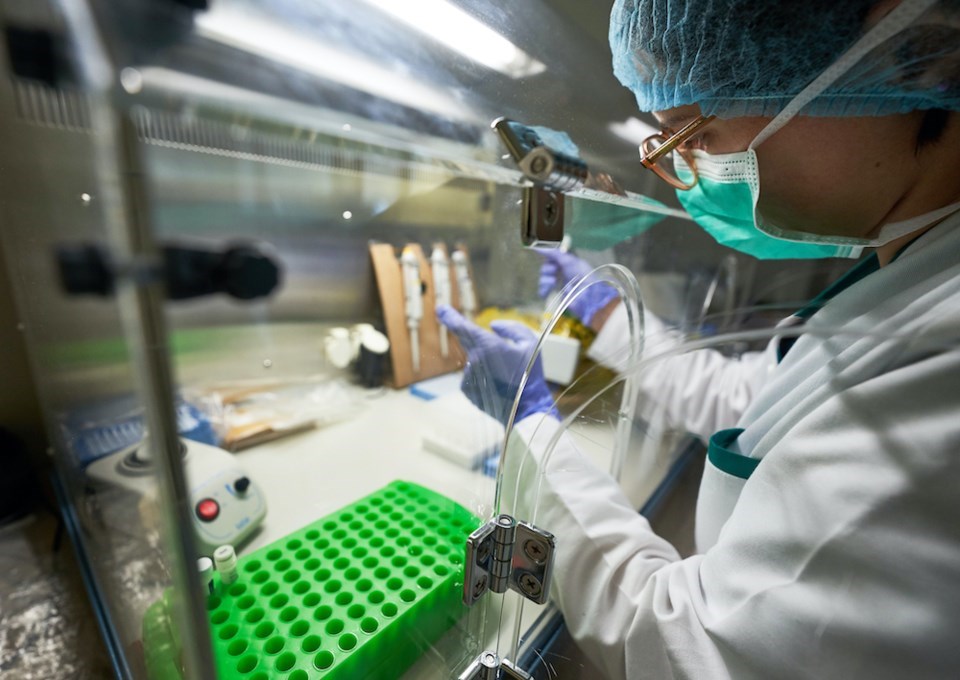The first case of the rare monkeypox virus has been discovered in Alberta, health officials announced Thursday (June 2).
Alberta’s provincial health officer Dr. Deena Hinshaw said one isolated case of the virus has been identified in the province, adding that provincial and federal officials are continuing to investigate its spread.
In a Twitter thread, the health officer noted that monkeypox is "uncommon [and] generally considered a low risk to the public at large," adding that it "does not spread easily between people."
And while it is possible to get sick from breathing in respiratory droplets, she underscored that "those at greatest risk are those who have had prolonged close contact with a case."
Hinshaw added that the individual had "close contact with a known case outside the province" and they are currently self-isolating. The risk of transmission is considered low.
What is a monkeypox virus infection? Can you die from monkeypox?
Monkeypox comes from the same family of viruses as smallpox. Most people recover from monkeypox within weeks, but the disease is fatal for up to 1 in 10 people, according to the World Health Organization (WHO).
Monkeypox symptoms typically begin with a flu-like illness and swelling of the lymph nodes, followed by a rash on the face and body. In Africa, people have been infected through bites from rodents or small animals, and it does not usually spread easily among people.
Similar to COVID-19, medical health professionals use a Polymerase chain reaction (PCR) test for patients who they suspect have the monkeypox virus. "For this, optimal diagnostic samples for monkeypox are from skin lesions – the roof or fluid from vesicles and pustules, and dry crusts," explains the WHO.
Monkeypox in Alberta: What is the risk of spread to B.C.?
The World Health Organization’s top monkeypox expert said she doesn’t expect the hundreds of cases reported to date to turn into another pandemic, but acknowledged there are still many unknowns about the disease, including how exactly it’s spreading and whether the suspension of mass smallpox immunization decades ago may somehow be speeding its transmission.
Dr. Stephen Hoption Cann, clinical professor in the school of population and public health at the University of British Columbia (UBC), told Vancouver Is Awesome in a phone interview that the province stopped immunizing people for smallpox decades ago. Since monkeypox comes from the same family of virus as smallpox, people would have less immunity against it.
Canadians born in 1972 or later have not been routinely immunized against smallpox; discontinuation of vaccination for travel was recommended by the WHO in 1980 and was no longer required by any country by 1982.
But even Canadians who received the smallpox vaccine wouldn't necessarily have immunity against it, noted Cann. "You'd vaccine people every five or 10 years...so for older individuals, it's been a long time.
"We don't really know how effective this vaccine would be at this stage."
The professor emphasizes that the virus is not easily spread. While someone could contract the virus through respiratory secretions, they'd have to be in "pretty close contact with somebody," he added. "Usually, you know, you live with somebody or you're caring for somebody who's ill. That's the kind of person we've seen picking up the infection."
But Cann noted that there are over 250 cases around the world and counting and that health officials don't know if the infection going to disappear quickly or rapidly spread. Further, he said the "transmission dynamics" have changed how it used to spread in Africa to the way it is currently spreading around the world.
"I mean...we have to decide how quickly we want to intervene [and] start vaccinating those individuals who are at higher risk."
If you believe you have been in prolonged close contact with someone who has monkeypox or are experiencing monkeypox symptoms such as fever, rash and swollen lymph nodes, please self-isolate and call 811 or your primary care physician.
With files from The Associated Press



